Top 10 Multinational Company
A corporate entity known as a multinational company or corporation operates outside of its native country in several other nations. A global firm is often a large corporation well-known for producing and selling goods and services. Numerous multinational corporations have become well-known in the global economy as time has gone on. Nike, Procter & Gamble, Microsoft, and more names immediately come to mind when we discuss the top 10 global corporations. The current period has seen the emergence of numerous large international corporations.
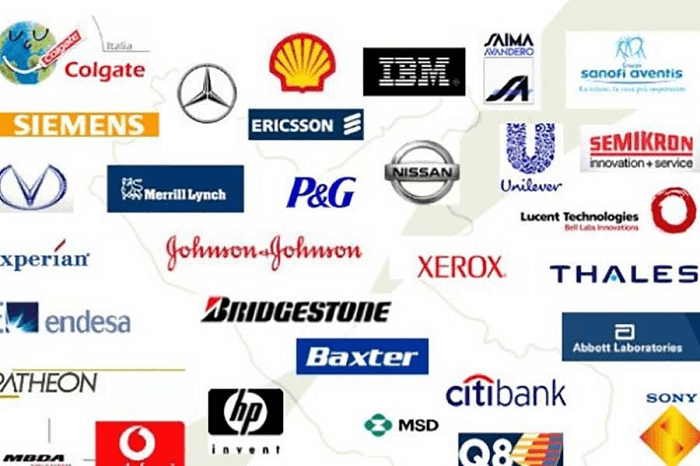
Which multinational corporations are the best in the world? This is a common question. We have compiled a list of the top 10 multinational corporations in the globe after taking into account each company's growth, earnings, geographic reach, and the caliber of the products and services they sell.
1. Microsoft
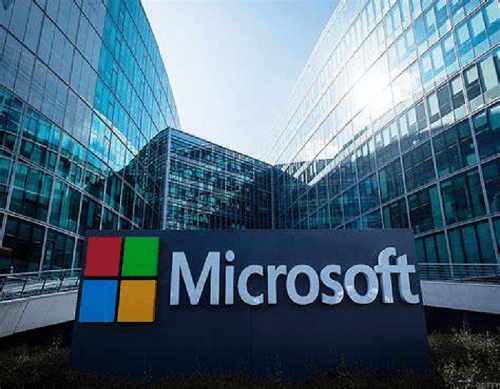
One of the largest and most successful multinational corporations in the world is Microsoft Corporation. It is well-known that this American multinational technology business creates, produces, and sells PCs, electronics, and computer software. From selling MS Dos in the middle of the 1980s, the company grew to become the largest global corporation in the world. In terms of the company's revenue in 2016, Microsoft was also notable for being named the biggest software maker in the world. Along with Google, Apple, Amazon, and Facebook, it is regarded as one of the top five US information technology businesses.
As of 2015, Microsoft maintained a dominant position in the marketplaces for office software suites and operating systems compatible with IBM PCs, despite losing most of the worldwide operating system market to Android.
2. Pepsico
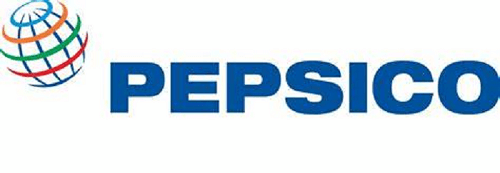
PepsiCo Inc. is regarded as an American multinational food, snack, and beverage company. Caleb Bradham famously founded it on August 28, 1920. As of January 26, 2012, PepsiCo had net yearly revenues of $43.3 billion, and retail sales for the company's whole brand exceeded $1 billion. It is also acknowledged as America's largest food and beverage producer. PepsiCo has successfully made it to the top 10 global corporations, conducting business in more than 200 nations.
Environmentalists have repeatedly criticized Pepsi for its links to harmful agricultural practices in its supply chain, distribution practices like the use of pesticides and deforestation linked to palm oil, its use of water resources, and the negative effects of its packaging, which is one of the major contributors to plastic pollution globally. Public health advocates have also criticized Pepsi's high-calorie, low-nutrition product lines, along with those of other well-known snack and beverage producers. PepsiCo has responded by publicly stating its commitment to limiting its impact. Still, it has yet to make any public announcements about its success on most of these commitments.
3. Coca-Cola
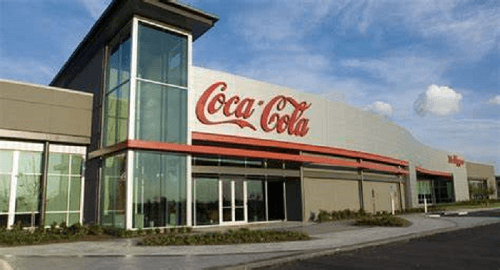
Coca-Cola usually referred to as Coke, is made by The Coca-Cola Company. John Stith Pemberton developed it in Atlanta, Georgia, in the late 19th century, and at first, it was advertised as a patent medicine and temperance beverage. Businessman Asa Griggs Candler acquired ownership of Coca-Cola from Pemberton in 1888. Through its marketing strategies, Coca-Cola dominated the world soft drink market in the 20th and 21st centuries. The recipe for Coca-Cola is a closely held commercial secret. The recipe is only known to a small, anonymous number of personnel. However, several alleged recipes and experimental recreations have been published. Coca-Cola has profited from the formula's relative secrecy to promote its goods. A complete class of soft drinks known as colas and imitations of the drink were produced.
The Coca-Cola Company creates concentrate, which is then offered for sale to authorized Coca-Cola bottlers across the globe. The finished product is made using concentrate, filtered water, and sweeteners. Bottlers with exclusive area agreements with the corporation then make the finished product in cans and bottles. The bottlers then distribute Coca-Cola worldwide to stores, dining establishments, and vending machines. The Coca-Cola Company also offers concentrate for food service distributors and soda fountains at upscale dining establishments.
4. Sony
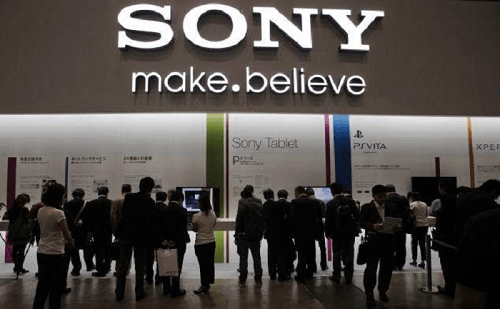
The Sony Group Corporation, also known as Son Gurpu Kabushiki geisha, is a Japanese international conglomerate with its headquarters in Minato, Tokyo. This important technology company has subsidiaries that include one of the top producers of consumer and professional electronics products, the top console manufacturer, and the top publisher of video games. One of the largest media companies, Sony Entertainment Inc., also owns the second-largest record label and one of the major music organizations (largest music publisher), as well as the third-largest film studio. This is the biggest conglomeration of media and technology in Japan. It is regarded as the most financially secure Japanese company and has net cash reserves of 2 trillion yen.
The top producer of image sensors is also Sony. Sony is the second-largest camera manufacturer and one of the top semiconductor vendors, with a market share of 55% in the image sensor sector. It dominates the market for premium TVs at least 55 inches (140 centimeters) in size and costs more than $2,500.
5. Procter & Gamble
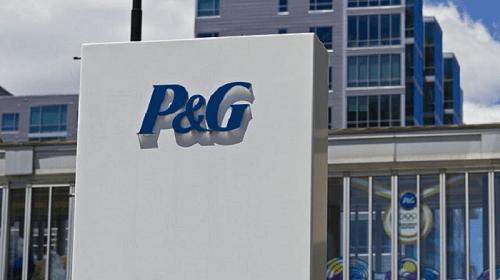
William Procter and James Gamble established The Procter & Gamble Company (P&G), a worldwide American consumer goods company, in 1837. It is headquartered in Cincinnati, Ohio. It specializes in a broad range of personal care, hygiene, and consumer health products. These items are broken down into several categories: beauty, grooming, health care, fabric & home care, and infant, feminine, & family care. Before being sold to Kellogg's, food, snacks, and beverages were also part of Pringles' product line. Ohio is where P&G was founded.
P&G reported $83.1 billion in sales in 2014. To focus on the remaining 65 brands, which generated 95% of the company's profits, P&G stated on August 1, 2014, that it would streamline the business by eliminating and offloading almost 100 brands from its product range.
6. Nestle
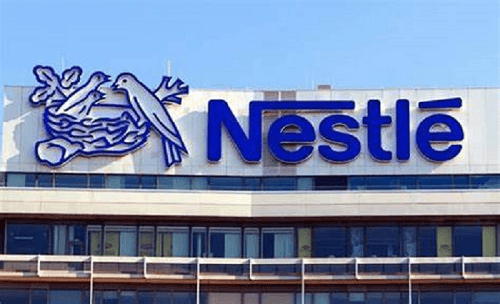
A multinational American investment bank and financial services company headquartered in New York City is Citigroup Inc. or Citi (stylized as Citi). The company was created in 1998 by merging financial powerhouse Travelers Group with banking behemoth Citicorp. Travelers were later spun out from the firm in 2002. Several foreign companies, as well as Citicorp, the parent company for Citibank, are owned by Citigroup. Delaware is the state where Citigroup was founded.
Another well-known brand in the global market for multinationals is Nestle. The second-largest international firm in the entire globe, this Swiss enterprise that processes food and beverages has its headquarters in Vevey, Vaud, Switzerland. With yearly sales of over 1.1 billion dollars, Nestle ranks second among the top 10 multinational corporations in the world thanks to its brands Nespresso, Nescafe, Kit Kat, Vittel, and Maggie. Nestle has gained recognition in publications such as Fortune Global 500 in 2017 and Forbes Global 2000 in 2016.
7. Apple Inc.
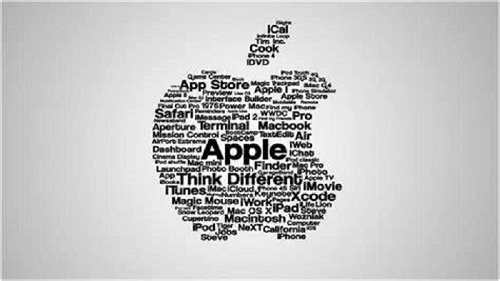
Apple Inc., a multinational technology company based in the United States, is headquartered in Cupertino, California. As of June 2022, Apple was the biggest firm in the world by market value. It was the second-largest maker of mobile phones and the fourth-largest vendor of personal computers, both measured in terms of unit sales. Apple is the largest technical business, with a projected revenue of US$365.8 billion in 2021. It belongs to the Big Five American technological companies, including Microsoft, Amazon, Meta, and Alphabet.
In August 2020, the company's valuation increased to $2 trillion and, most recently, $3 trillion in January 2022. The business is criticized for its environmental practices, corporate ethics, anti-competitive behavior, and sourcing of its resources. It also faces criticism for the labor practices of its contractors. Despite this, the business has a sizable fan base, and customers are quite devoted to its brand. One of the most valuable brands in the world, it is ranked.
8. HP- Hewlett-Packard
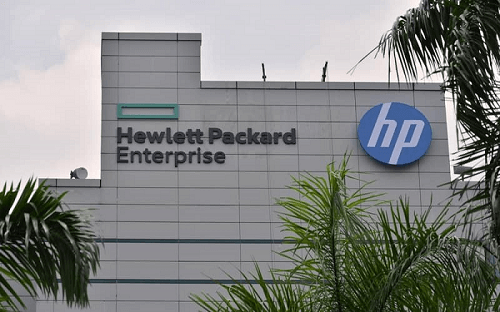
The Hewlett-Packard Firm, usually HP or Hewlett-Packard, was an American multinational firm specializing in information technology. HP created and delivered a wide range of hardware components, software, and related services for clients in the public sector, the healthcare industry, the education sector, small and medium-sized businesses (SMBs), large corporations, and other markets. Palo Alto, California, served as the company's corporate headquarters. Bill Hewlett and David Packard established the business in a one-car Palo Alto garage in 1939. They first produced a variety of electrical test and measurement products. The HP Garage at 367 Addison Avenue is a recognized historical property in the state of California and bears a plaque designating it as the "Birthplace of "Silicon Valley."
The Hewlett-Packard Company was officially founded on July 2, 1939, thanks to its first substantial contract, which it won in 1938 for providing test and measurement equipment for Walt Disney's production of the animated film Fantasia. As a result of the success of its products, the business expanded into an international firm. When Lenovo passed HP in the second quarter of 2013, HP held the top spot in the PC manufacturing industry. HP's competence areas included designing and making networking, computer, and data storage hardware, writing software, and providing services. Personal computers, business and industry standard servers, related storage devices, networking equipment, software, a variety of printers, and other image products were the key product categories. The company advertised its products to individuals, small and medium-sized organizations, corporations, online distribution, office supply, consumer electronics retailers, software partners, and major technology vendors. For its goods and those of its partners, it provided services and ran a consulting firm.
9. Citigroup Inc.
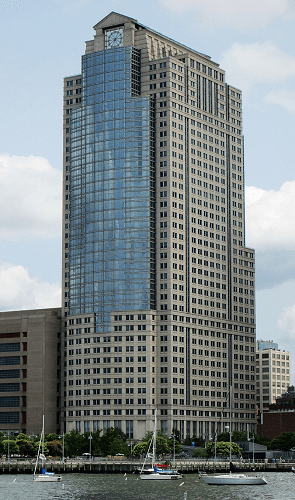
A multinational American investment bank and financial services company headquartered in New York City is Citigroup Inc. or Citi (stylized as Citi). The company was created in 1998 by merging financial powerhouse Travelers Group with banking behemoth Citicorp. Travelers were later spun out from the firm in 2002.
One of the nine international investment banks included in the Bulge Bracket. It is frequently referred to as being too big to fail and is deemed by the Financial Stability Board to be a systemically important bank. Along with JPMorgan Chase, Bank of America, and Wells Fargo, Citigroup ranks as the third-largest bank in the US. These four banks collectively make up the Big Four of American banking.
The Fortune 500 lists Citigroup as number 33 as of 2021. Around 200 million people have accounts with Citigroup, which operates in more than 160 nations. It employed 357,000 people before the financial crisis of 2007-2008 when the US government had to bail it out with a massive stimulus package. It has 223,400 workers at the moment.
10. IBM
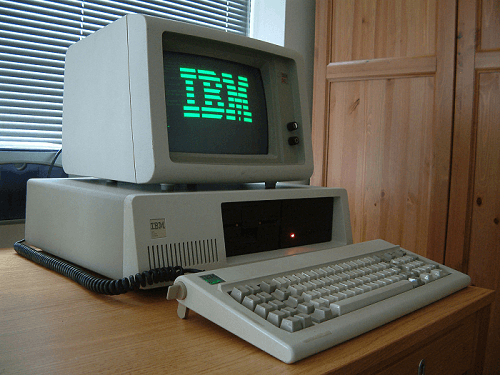
The International Business Machines Corporation (IBM), an American global technology company with operations in over 171 countries, is based in Armonk, New York. New York is where IBM was founded. In 1924, Charles Ranlett Flint, a trusted businessman, renamed the Computing-Tabulating-Recording Company (CTR), which he had formed in Endicott, New York, in 1911.
IBM creates, markets, and provides hosting, consulting, and software for computers with an emphasis on everything from mainframe computers to nanotechnology. In terms of the number of annual US patents produced by a company, IBM has set the record for 29 years (as of 2021).
With over 282,100 employees as of 2022, IBM ranks among the top employers in the world and is one of the 30 companies that make up the Dow Jones Industrial Average.
The Conclusion
In conclusion, a multinational corporation is one of the trickiest kinds of global trade. Such a business employs a transnational strategy when looking for overseas markets for its resources and goods and deciding where to locate its manufacturing facilities. They also follow a global corporate strategy that allows for domestic and international economic activity. Creating specialized institutions to assist innovation ought to be one of the top initiatives for enhancing MNE operations in the global economy. Additionally, build organizational mechanisms for controlling the innovation activity of MNEs and enhance the legislative environment for investment activities and state assistance for the creation.